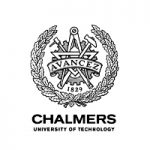项目介绍
Aims and Scope of the Graduate Program
The graduate program is designed to give students an understanding of general phenomena in synthesis–structure–property relationships in all materials, plus a detailed understanding of phenomena for at least one particular class of materials. After completing the Special Regulations/Ph.D. program, students have pursued careers in teaching and research at colleges and universities, in research for government and industry, in the operation and control of manufacturing processes, and in management and development positions in the materials industry. Students may enter the graduate program in materials science with undergraduate preparation in physics, chemistry, engineering, or materials science.
Students interested in terminating their graduate study at the master’s level are not normally admitted. Students in the Ph.D. program are required to complete a set of core courses, pass an oral candidacy examination, complete a thesis describing original research in materials science or a related field, and publicly defend their thesis work
Preparation for the Graduate Program
Students who have not specialized in materials science as undergraduates, as well as those who have, may be admitted for graduate study. As preparation for advanced study and research, entering graduate students are expected to have a thorough background in undergraduate mathematics, physics, and engineering. An outstanding four-year undergraduate program in mathematics and sciences may also provide a suitable background. The qualifications of each applicant will be considered individually, and, after being enrolled, the student will arrange his or her course of study and research in consultation with members of the faculty and the Materials Science option representative.
Description of the Degree of Doctor of Philosophy (Ph.D.)
As described in more detail below, the doctoral program in Materials Science consists of taking a series of preparatory classes, followed by an oral candidacy exam, a written thesis, and a final oral thesis defense. The goals of this program are to develop competence in a chosen field of specialization; to develop tools with which to assess problems outside the student’s field of specialization; to develop sufficient strength in the physical sciences for self-education beyond formal training; and to cultivate the motivation and foresight to become a productive and influential leader. As such, the graduate program in Materials Science is designed to be a doctoral program and students are only admitted into the doctoral program. There is no separate master’s program in Materials Science, however, a degree of Master of Science in Materials Science can be awarded upon request by students after the fulfillment of course requirements.
The Ph.D. degree in Materials Science is focused on research. Study and research programs for the Ph.D. degree are individually planned to fit the interests and background of the student. A comprehensive research project resulting in an original contribution to the field documented by a dissertation is required.
Residency. A minimum of three academic years in residence as a graduate student are required by the Institute, and two or more additional years are usually needed for preparation of the thesis.
Language Requirement. There is no language requirement for the Ph.D. degree.
Minor. No minor is required for the Ph.D. degree. Students are, however, encouraged to take advanced courses appropriate to their particular interests.
Advising and Thesis Supervision
An interim adviser is appointed for each student upon admission to a graduate degree in Materials Science (typically the Materials Science option representative). The interim adviser will serve as the primary mentor until the student finds a research adviser. In the first year (no later than the third term), each student must choose a research adviser who will have primary responsibility for supervising the student’s course program and research. The important adviser–advisee relationship requires effort from both parties, and some general expectations are outlined earlier in this section of the catalog. In consultation with their research adviser, the student should then form a Ph.D. thesis advisory committee. This four member committee should include: (i) the student’s advisor, and (ii) at least three members of the Caltech professorial faculty. The research adviser and the thesis advisory committee provide the majority of mentoring to the student, providing advice on research, progress toward the Ph.D., future careers, and other aspects of life in graduate school and as a professional scientist.
Requirements for Candidacy to the Ph.D. Degree
To be recommended for candidacy for the Ph.D. degree in Materials Science, the student must, in addition to meeting the general Institute requirements, do the following:
a. Courses. To continue in the graduate program, the student must maintain a B– average for each term. Advancement to candidacy requires the successful completion of the program listed under “Core Courses” above. Alternatively, if the student has taken equivalent courses elsewhere, he or she may prove competency to the instructor of the equivalent course at the Institute and request a waiver of the required course. With the above course schedule as a guide, students must complete a minimum of 135 units of courses, numbered 101 or above, plus 2 units of MS 110ab, before presenting themselves for the candidacy exam. The coursework towards the Ph.D. degree in applied physics is typically completed within the first two years of residency at Caltech.
- All units must be taken for grades and passed with a grade of at least a C, except for courses offered only on a pass/fail basis.
- Only courses in which a student has obtained a grade of C or higher will be counted toward the 135 unit minimum.
- No more than 27 units of research through MS 200 can be counted toward the 135 unit requirement of candidacy.
- Students must complete the degree progress report online.
- Alternate Subjects or Areas
- Students entering the program with advanced preparation may choose either to substitute more advanced courses in the topical areas shown or to demonstrate competency by successfully passing both the midterm and final examinations.
- Students may petition the option representative to accept alternate subjects or areas.
- These changes should retain core materials science knowledge, and should represent sufficient breadth.
- The approval is not automatic; such petitions must be submitted to the option representative and approved before the student registers for the course.
b. Oral Candidacy Examination. This examination should be taken no later than the end of the student’s second year of residence. The examination is based on the student’s course work, and how it is related to the student’s planned research area. The student will be expected to deliver a half-hour oral presentation describing his/her research to date and to answer questions related to this work. This portion of the examination will be followed by a more open-ended discussion to test general proficiency in the areas of Materials Science. Students who fail the oral examination on their first attempt will be given additional guidelines for further study and an opportunity to retake the examination a second and final time if the committee so recommends. Should a student fail the oral examination a second time, he/she cannot continue with doctoral studies leading to the Ph.D. Upon recommendation of the examining committee, however, the student may be granted a terminal master’s degree. The approval of the Materials Science option representative is necessary for registration beyond the fourth of graduate residence without successfully completing the candidacy exam.
Students who fulfill the requirements above will be recommended for candidacy to the doctoral program and a master’s degree (if applicable) in Materials Science.
c. Research Competence. The student must have a doctoral research adviser, and must have completed at least 18 units of MS 200.
Ph.D. Thesis Requirements
The candidate is to provide a draft copy of his or her completed thesis to the members of the examining committee (typically the same as the thesis advisory committee) at least two weeks before the final oral examination. The date of the examination and the composition of the examining committee will not be approved by the dean of graduate studies until the thesis is submitted in completed form, i.e., ready for review by the dean, the members of the thesis committee, and the Graduate Office proofreader. Registration is required for the term in which the thesis defense is undertaken, but is not normally allowed beyond the last date of the term. For more information, please see the section entitled “Information for Graduate Students” in the Caltech catalog.
Ph.D. Final Examination
The candidate is required to take a final oral examination covering the doctoral thesis and its significance in and relation to his or her major field. It will consist of a public thesis seminar and an associated oral examination on the thesis and related fields. This examination will be held at least two weeks after the doctoral thesis has been presented in its final form, and prior to its approval.
Registration Beyond the Sixth Year of Graduate Residence
A graduate student majoring in another option at the Institute may elect a subject minor in materials science. He or she must obtain approval from the materials science faculty of a course of study containing at least 45 units of advanced courses with a grade of C or higher. Normally a member of the materials science faculty will participate in the candidacy examination in the student’s major department.
- Students cannot use courses required by their major option in fulfillment of this requirement.
- Students interested in a minor must receive prior approval from the option representative in materials science, who will review and approve the proposed course of study.
- It is recommended that this course of study include advanced courses spanning different subfields of materials science.
Subject Minor
A graduate student majoring in another option at the Institute may elect a subject minor in materials science. He or she must obtain approval from the materials science faculty of a course of study containing at least 45 units of advanced courses with a grade of C or higher. Normally a member of the materials science faculty will participate in the candidacy examination in the student’s major department.
- Students cannot use courses required by their major option in fulfillment of this requirement.
- Students interested in a minor must receive prior approval from the option representative in materials science, who will review and approve the proposed course of study.
- It is recommended that this course of study include advanced courses spanning different subfields of materials science.
联系方式
电话: (626) 395-6811相关项目推荐
KD博士实时收录全球顶尖院校的博士项目,总有一个项目等着你!





